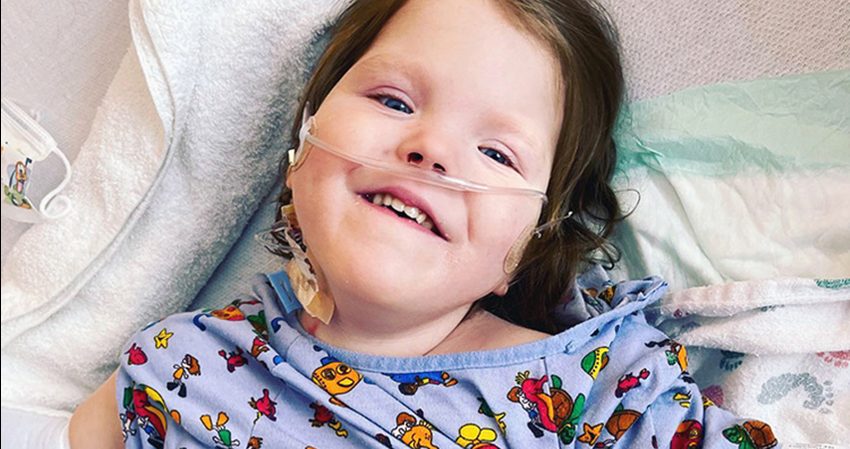
One day, your baby smiles. Two months later, they stop moving their legs. Doctors run tests. There’s no clear answer. Eventually, someone whispers words you’ve never heard before—a rare genetic disorder. That phrase can feel like a sentence. It’s mysterious, intimidating, and hard to grasp. But understanding it, even just a little, can change everything.
This guide was carefully prepared by the editorial team at www.turkishdoctor.ae to help families, caregivers, and even healthcare professionals navigate one of medicine’s most complex frontiers: rare genetic diseases.
What exactly is a rare genetic disorder?
Let’s break it down. A rare genetic disorder is caused by changes in a person’s DNA. These changes—also called mutations—can affect how the body grows, moves, or fights disease. They might be inherited from parents. Or they might occur randomly, during development.
In the medical world, a condition is called “rare” if it affects fewer than 1 in 2,000 people. But don’t let that fool you. There are over 7,000 known rare disorders. Together, they affect more than 300 million people worldwide. So rare doesn’t mean unseen. It means misunderstood.
In regions like the Middle East, including the UAE and Türkiye, certain rare conditions are more common due to higher rates of consanguineous marriage. Disorders like spinal muscular atrophy (SMA), thalassemia, and familial Mediterranean fever (FMF) appear more frequently in these populations.
How are these disorders diagnosed?
Here’s where things get complicated. Rare genetic disorders are notoriously hard to identify. Many begin with subtle symptoms: delayed speech, frequent infections, or unusual facial features. Most pediatricians aren’t trained to spot the early signs.
Diagnosis usually starts with a full medical history. Doctors look at the family tree, developmental milestones, and any unusual lab results. Then come the tests—blood work, imaging, and sometimes genetic sequencing. That last one is key.
Genetic testing has changed the game. Whole exome or whole genome sequencing can reveal mutations no one would see otherwise. But it’s still expensive, and not all countries have insurance systems that cover it. In Dubai and Abu Dhabi, some hospitals have started to include these tests in neonatal screenings—but it’s not universal yet.
Even when testing is done, getting an answer can take months or years. Some patients remain undiagnosed despite every test. That’s why rare disorders are also called diagnostic odysseys—a long, painful journey for families.
What treatments are available?
This is the part many people fear—because the truth is, most rare genetic disorders have no cure. But that doesn’t mean nothing can be done. Treatment often focuses on managing symptoms, improving quality of life, and supporting development.
Take SMA, for example. A few years ago, it was considered fatal in infancy. Today, thanks to gene therapy and early detection, some children with SMA live full, active lives. The key is catching it early and acting fast.
In Dubai, specialized pediatric neurology and metabolic clinics now offer multidisciplinary care for rare disorders. These teams often include geneticists, dietitians, speech therapists, and psychologists. For Turkish families in the UAE, finding a Turkish-speaking doctor who understands both the medical and emotional needs can make all the difference.
Some conditions, like phenylketonuria (PKU), are manageable with strict dietary changes. Others may require regular enzyme infusions or even bone marrow transplants. The treatment journey is often lifelong—and expensive. Access to these treatments depends heavily on local healthcare policies and coverage.
What support exists for families?
Living with a rare disorder doesn’t just affect the patient. It impacts the whole family. Parents become full-time caregivers. Siblings often feel overlooked. Financial strain and emotional burnout are common.
In Türkiye, support networks like KASDER and LÖSEV offer guidance and advocacy. In the UAE, organizations such as Al Jalila Foundation and Rare Disease Day UAE are slowly building awareness. Still, many families say they feel isolated.
That’s where online communities come in. Facebook groups, rare disease forums, and WhatsApp support chats help parents share experiences, vent frustrations, and discover new treatment options. Many Turkish families in Dubai now connect with others across continents—because rare doesn’t mean alone.
Hospitals in Dubai also offer family-centered care units, where parents are involved in every step—from diagnosis to therapy planning. This model, inspired by global pediatric centers, is proving especially useful in managing rare and chronic conditions.
Why early awareness makes a difference
Here’s the thing: early intervention changes outcomes. Many rare disorders respond better to treatment when caught early. That’s why awareness among primary care physicians and pediatricians is vital.
In Türkiye, newborn screening includes over 15 rare disorders. In the UAE, the panel is expanding each year. But awareness goes beyond tests. It’s about listening to parents. If a mother says, “something’s not right,” she’s usually correct.
Cultural stigma still plays a role. Some families fear social judgment or blame. But silence delays help. Educating communities, especially in expat populations like Dubai’s Turkish families, helps reduce that fear.
Schools, too, are learning to adapt. Inclusive education models, speech therapy integration, and special needs assistance are growing in Dubai’s international schools. Parents just need the right guidance to access these services.
This guide was written by the editorial team at www.turkishdoctor.ae to support awareness, early diagnosis, and compassionate care for every child and family touched by rare genetic disorders.
 then "Add to Home Screen"
then "Add to Home Screen"